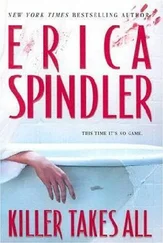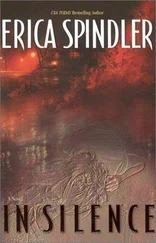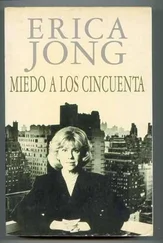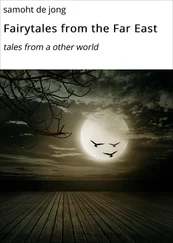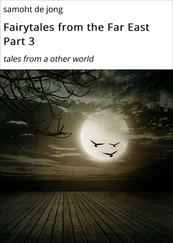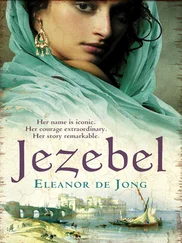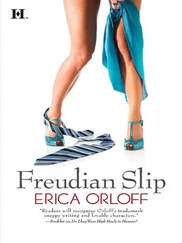Not many of these communal creations survived, but recently I came across a fragment which more or less conveys the spirit of all those other lost masterpieces. It was our habit to plunge into the action with as few preliminaries as possible, so the texture of the narrative was always somewhat choppy. One of the rules was that each author was allowed three minutes before having to pass the typewriter along to the next person, and this naturally increased the spastic quality of the prose. Since Pia usually started, she was the one who had the privilege of sketching the outlines of the character we would all have to tolerate:
Dorian Fairchester Faddington IV was a promiscuous poetaster of whom even his best friends declared that he “went from bed to verse.” Though he was sexually omnivorous and on occasion preferred camels, like nine out of ten doctors, ordinarily his taste ran to women. Hermione Fingerforth was a woman-or so she liked to assume-and whenever she ran into Dorian it was not long before their lips met in a succession of interesting poses.
“The skin is the largest organ of the body,” she once nonchalantly remarked to him as they were sunbathing in the nude together on the terrace of her penthouse in Flatbush.
“Speak for yourself,” he declared, leaping on top of her in a sudden paroxysm of passion.
“Out, out of my damned twat!” she yelled, pushing him away and shielding her much-vaunted virginity with a silver-foil sun reflector.
“I take it you want me to reflect on what I’m doing,” he quipped.
“Jesus Christ,” she said crossly, “men are only interested in women in spurts.”
At the time, we all thought this was the funniest piece of prose ever written. There was a continuation of this dialogue, too-something about a traffic observation helicopter with two radio announcers appearing on the roof and the whole scene turning into an orgy-but this has not survived. The fragment, however, does convey something of the mood of that period in our lives. Beneath the wise-ass cynicism and pseudo-sophistication was the soupiest romanticism since Edward Fitzgerald impersonated Omar Khayyam. Pia and I both wanted someone to sing in the wilderness with, and we knew that John Stock and Ron Perkoff were not exactly what we had in mind.
We were both bookworms, and when life disappointed us we turned to literature-or at least to the movie version. We saw ourselves as heroines and couldn’t understand what had become of all the heroes. They were in books. They were in movies. They were conspicuously absent from our lives.
History and Literature Subjectively Considered at Sixteen
I
Dorian Gray had locks of gold.
Rhett Butler was dashing and handsome and bold…
Julien Sorel knew all about passion.
Count Vronsky was charming in the Russian fashion.
I’d say that there’s a handful to whom I’d gladly grovel-
And everyone of them is-quite busy in a novel.
II
Before Juliet was sixteen, she’d reconciled two feuding houses.
And Nana had done all the Paris bars with drunks and tramps and souses.
Helen’s face, they say, launched a good many ships.
Salome had only to shed her seven slips.
Esther’s beauty saved her people.
Mary’s feat is praised from every steeple.
Louis’ shepherdess wife caused a nation to riot.
But here I am, past sixteen, and the world’s fairly quiet.
The meter was bumpy, but the message was plain. We would have gladly groveled if only we could have found men worth groveling to.
The boys we met in college were, in a way, worse. At least John and Ron were good-natured creeps who adored us. They didn’t have minds like G.B.S. and bodies like Michelangelo’s David, but they were devoted to us, and regarded us as creatures of glittering wit and sophistication. But in college the war between the sexes began in earnest and our minds and bodies drifted farther and farther apart.
I found my first husband during my freshman year and married him after graduation four years later with occasional sidetrips and experiments in between. By the time I was twenty-two, I was a veteran of one marriage which had fallen apart under the most painful circumstances. Pia found a succession of bastards who fucked her and disappointed her. From college, she wrote long epistolary epics in her tiny baroque handwriting and described each bastard in detail, but somehow I could never tell them apart. They all seemed to have hollow cheekbones and lank blond hair. She was hung up on the midwestern shagetz the way certain Jewish guys are hung up on shikses. It was as if they were all the same guy. Huck Finn without a raft. Blond hair, blue denim, and cowboy boots. And they always wound up walking all over her.
Progressively the two of us got more and more disillusioned. This was inevitable, of course, given the absurd fantasies we’d started out with, but I don’t think we were that different from other adolescent girls (though we were more literary and certainly more pretentious). All we wanted were men we could share everything with. Why was that so much to ask? Was it that men and women were basically incompatible? Or just that we hadn’t yet found the right ones7
By the summer of ’65 when we were both twenty-three and toured Europe together, our disillusionment was such that we slept with men principally to boast to each other about the number of scalps on our belts.
In Florence, Pia paraphrased Robert Browning:
Open my cunt and you shall see
Engraved upon it: Italy.
We slept with guys who sold wallets outside the Uffizi, with two black musicians who lived in a pensione across the Piazza, with Alitalia ticket clerks, with mail clerks from American Express. I had a week-long affair with that married Italian named Alessandro who liked me to whisper “shit fuck cunt” in his ear while we screwed. This usually made me so hysterical with laughter that I lost interest in screwing. Then another week-long affair with a middle-aged American professor of art history whose name was Michael Karlinsky and who signed his love letters “Michelangelo.” He had an alcoholic American wife in Fiesole, a gleaming bald head, a goatee, and a passion for Granità di Coffee. He wanted to eat orange segments out of my cunt because he’d read about it in The Perfumed Garden. And then there was the Italian voice student (tenor) who, on our second date, told me his favorite book was Sade’s Justine, and did I want to enact scenes from it? Experience for experience’s sake, Pia and I believed-but I never saw him again.
The best part of these adventures seemed to be the way we went into hysterics describing them to each other. Otherwise, they were mostly joyless. We were attracted to men, but when it came to understanding and good talk, we needed each other. Gradually, the men were reduced to sex objects.
There is something very sad about this. Eventually we came to accept the living and the role-playing and the compromises so completely that they were invisible-even to ourselves. We automatically began to hide things from our men. We could never let them know, for example, that we talked about them together, that we discussed the way they screwed, that we aped the way they walked and spoke.
Men have always detested women’s gossip because they suspect the truth: their measurements are being taken and compared. In the most paranoid societies (Arab, Orthodox Jewish) the women are kept completely under wraps (or under wigs) and separated from the world as much as possible. They gossip anyway: the original form of consciousness-raising. Men can mock it, but they can’t prevent it Gossip is the opiate of the oppressed.
But who was oppressed? Pia and I were “free women” (a phrase which means nothing without quotes). Pia was a painter. I was a writer. We had more in our lives than just men; we had our work, travel, friends. Then why did our lives seem to come down to a long succession of sad songs about men? Why did our lives seem to reduce themselves to manhunts? Where were the women who were really free, who didn’t spend their lives bouncing from man to man, who felt complete with or without a man? We looked to our uncertain heroines for help, and lo and behold-Simone de Beauvoir never makes a move without wondering what would Sartre think? And Lillian Hellman wants to be as much of a man as Dashiell Hammett so he’ll love her like he loves himself. And Doris Lessing’s Anna Wulf can’t come unless she’s in love, which is seldom. And the rest-the women writers, the women painters-most of them were shy, shrinking, schizoid. Timid in their lives and brave only in their art. Emily Dickinson, the Brontes, Virginia Woolf, Carson McCullers… Flannery O’Connor raising peacocks and living with her mother. Sylvia Plath sticking her head into an oven of myth. Georgia O’Keefe alone in the desert, apparently a survivor. What a group! Severe, suicidal, strange. Where was the female Chaucer? One lusty lady who had juice and joy and love and talent too? Where could we turn for guidance? Colette, under her Gallic Afro? Sappho, about whom almost nothing is known? “I famish/ and I pine,” she says in my handy desk translation. And so did we! Almost all the women we admired most were spinsters or suicides. Was that where it all led?
Читать дальше
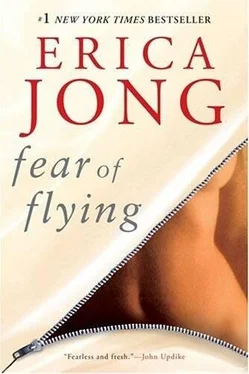
![Brian Jacques - [Flying Dutchman 01] - Castaways of the Flying Dutchman](/books/128851/brian-jacques-flying-dutchman-01-thumb.webp)


